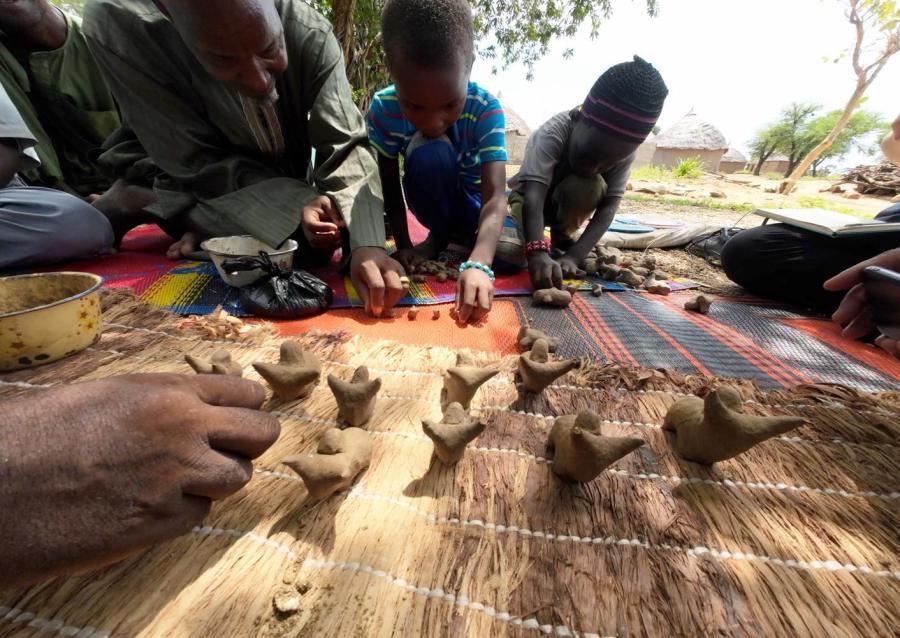Darfur. The word evokes images of marauding forces on camel and horseback razing villages, burning crops, massacring men, raping women, and driving some two million innocent civilians of all ages into the desert.
It also evokes exasperation. It’s been more than three years since reports of massive human suffering in western Sudan began appearing in the international press. It’s been more than two years since U.N. Under-Secretary General for Humanitarian Affairs Jan Egeland called the Sudan government’s “scorched-earth tactics” one of the world’s “worst humanitarian crises.” It’s been more than a year since President Bush declared the situation in Darfur “genocide.”
And now, side by side with the hopeful news that Sudan has agreed to an African Union-proposed peace deal, and the United Nations has imposed sanctions on four individual Sudanese accused of abuses, comes news of new attacks, not only on villages in south Darfur but on humanitarian agencies. Moreover, as Human Rights Watch reports, the crisis in Darfur is now “bleeding freely across the border” into Chad.
Apparently “never again” does not mean “never again”; “enough” does not mean “enough.”
What will it take to get the U.N. Security Council, the U.S. government, and the governments of other major world powers to stop—once and for all—the atrocities Sudan is perpetrating against its own people? People power, including the arrests of U.S. Congressmen, is not working. Humanizing the conflict, whether through photojournalism, village-by-village accounts of ethnic cleansing, or cultural snapshots of Fur, Masalit, and other ethnic groups in the area, is not working. An under-staffed, under-supplied, under-mandated African Union force is not working.
What needs to be done is clear. Unyielding international pressure must be put on Sudan to enable humanitarian assistance to reach those in need. The U.N. Security Council must authorize and engage an effective international force with the capacity and the mandate to protect civilians throughout the region. The African Union and all states must do all they can to cooperate with the International Criminal Court prosecutor as he investigates war crimes, crimes against humanity, and genocide in Darfur.
Since 2004, Cultural Survival has repeatedly published updates and analyses of the vast human tragedy occurring in Darfur, as well as cultural descriptions of the peoples who have been targeted. (All are available on our website.) Often I am asked whether the people of Darfur are “indigenous.”
Indigeneity in Africa is a complex issue. The Working Group on Indigenous Populations and Communities of the African Commission on Human and Peoples’ Rights recently wrestled with the meaning of indigeneity in Africa. It found that Africa’s indigenous peoples “cut across various economic systems and embrace hunter-gatherers, pastoralists as well as some small-scale farmers . . . [and] practice different cultures and social institutions and observe different religious systems, “ but concluded that a strict definition is neither necessary nor desirable. According to the report,
-
The overall characteristics of the groups identifying themselves as indigenous peoples are that their cultures and ways of life differ considerably from the dominant society and that their cultures are under threat in some cases to the extent of extinction . . . . [S]urvival of their particular way of life depends on access and rights to their traditional land and the natural resources thereon . . . . They often live in geographically isolated [regions] and suffer from [political and social] marginalization. They are subject to domination and exploitation within national political and economic structures that are commonly designed to reflect the interests and activities of the national majority. This discrimination, domination, and marginalization violate their human rights as peoples/communities, threaten the continuation of their cultures and ways of life and prevent them from being able to genuinely participate in deciding on their own future and forms of development.
Elements of this description fit the peoples of Darfur. While they do not self-identify as “indigenous,” their cultures differ markedly from Sudan’s political elite and from the government-backed Janjaweed militias that, along with government troops, have driven them from their homes. Their way of life depends on access to their traditional lands and resources, and to a complex web of inter-relationships that enable them to cope when privation strikes the arid, isolated landscapes in which they live. In recent years they have suffered extreme human rights violations that threaten the continuation of their cultures and prevent them from genuinely participating in decisions about their futures.
There is no dispute that the government of Sudan is subjecting them to discrimination, domination, and marginalization that violates their human rights as peoples and as communities, as well as individuals. The peoples of Darfur urgently deserve the protections afforded to both indigenous and non-indigenous peoples by regional and international human rights and humanitarian law instruments.
When genocide is in the offing, debates over terminology have an insidious way of undermining or delaying desperately needed intervention. In Darfur, while the international community argued about whether the assaults and ethnic cleansing amounted to genocide, thousands of people died or were displaced.
Similarly, while Cultural Survival is dedicated to promoting the rights of indigenous peoples, we cannot avoid responding to the events in Darfur on the grounds that the victims there are not “indigenous.” Please join us and the thousands of other individuals and organizations that are taking a stand for peace, justice, repatriation, and lasting protection for the men, women, and children who have suffered as a result of the Sudan government’s genocidal campaign in Darfur.

